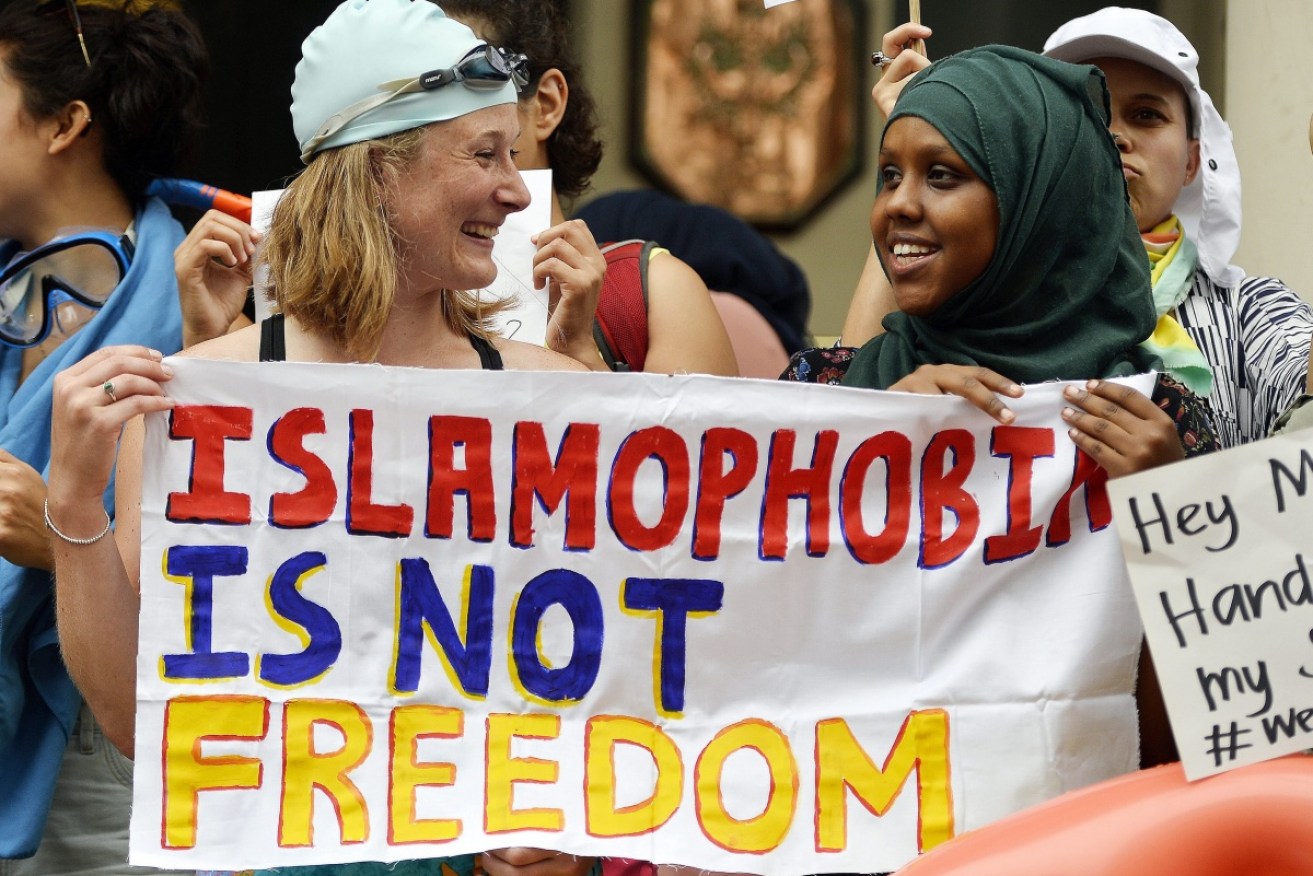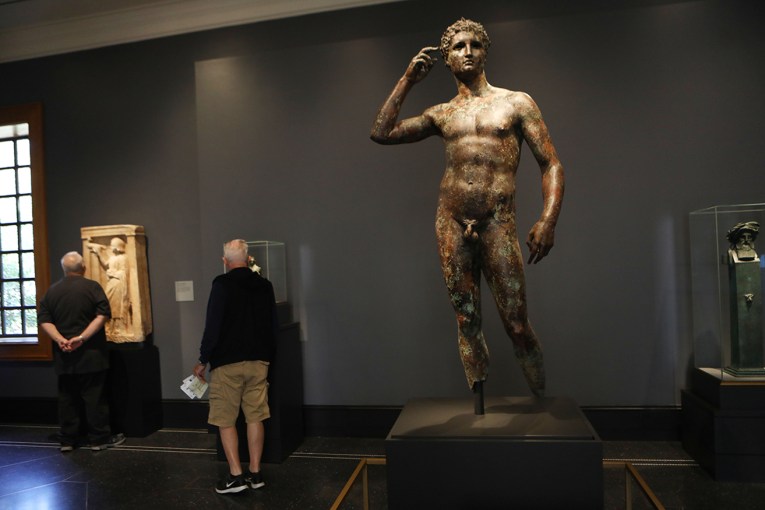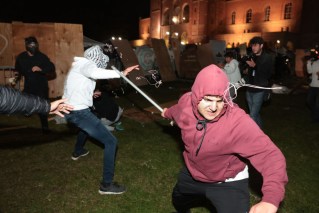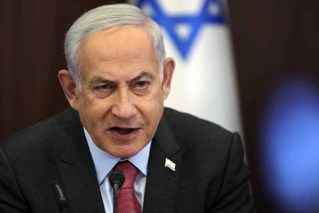Criticism of France’s burkini ban grows

Demonstrators stage a protest over the burkini ban at the French Embassy in London. Photo: AAP
The French education minister has weighed in on criticism of the controversial burkini ban on some of the country’s beaches, arguing that forbidding Islamic-inspired swimwear opens a gateway for racial discrimination.
“This clears the way for racist slogans,” Najat Vallaut-Belkacem said in a radio interview on Thursday, hours before France’s top administrative court, the Council of State, was to examine whether the ban is discriminatory.
“It raises the question of individual liberties,” Vallaut-Belkacem told radio broadcaster Europe 1.

Armed police in Nice fine a woman for wearing a burkini. Photo: Twitter.
However, Prime Minister Manuel Valls defended the ban in an interview with TV channel BFMTV, claiming that the burkini — a swimwear garment designed to cover the arms, legs and head in keeping with Islamic standards of modesty — symbolised the enslavement of women.
The debate intensified as pictures began circulating online earlier in the week that show a woman surrounded by four policemen removing her long-sleeved top on a beach in Nice.
I wonder if France would make these ladies take their clothes off too. #BurkiniBan pic.twitter.com/PP6EIWlaoZ
— Irene Adler (@The_Whip_Hand) August 24, 2016
Former president and upcoming election hopeful Nicolas Sarkozy called the burkini a “provocation” in comments to channel TF1.
Nice, which is on high alert following a deadly terrorist attack during Bastille Day celebrations in July, is one of several places in southern France where a burkini ban is now in place.
Burkini is a “provocation”: Sarkozy
France’s former president, Nicolas Sarkozy, has branded the full-body burkini swimsuits worn by some Muslim women a “provocation” that he says supports radicalised Islam.
A series of local town bans on burkinis in France has set off a heated debate in the strictly secular country. Sarkozy says Wednesday night that “we don’t imprison women behind fabric”.
As a leading opposition figure, Sarkozy announced this week that he is running for the presidency again in next spring’s election.
He must first win the primaries organised by the French right in November, where he’s expected to face tough competition.
Sarkozy says if he wins, he will ban every religious sign in French universities.
Sarkozy is expected to campaign on a hard-line platform on immigration and security issues.








